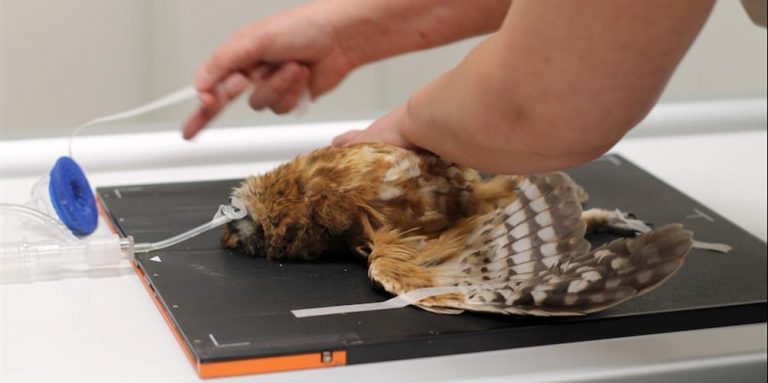Let’s get serious says leading expert
Proven repeat offenders need to be kept out of harm’s way
The Invasive Species Council is one of the leading agencies when it comes to managing feral and domestic cats – a pressing and important matter in conserving native species. The third in a series of programs: Aliens Among Us featured John Read, ecologist and author of Among the Pigeons: Why our cats belong indoors. John is considered Australia’s leading expert on the impacts of feral and roaming cats, and this is a special opportunity to see the world of cats through his eyes. Alongside John is former Tasmanian Senator Christine Milne, author Tim Low, and Invasive Species Council CEO Andrew Cox.
Here are two transcribed sections from the program …
Christine Milne is a strong advocate for keeping cats out of harm’s way. Of cat owners who say their cat should be allowed to roam free at anytime anywhere, she says: “Their private right to a cat ought to be outweighed by the public interest in terms of wildlife and welfare of the animal itself.”
“In Tasmania, new regulations require that cats of 4 months and older must be desexed and microchipped, the problem is these rules are not followed up, so who knows how many cats are out there roaming the streets and forests, without our knowledge.”
John Read, author Among the Pigeons, Why our cats belong indoors. In response to the claims that Trap-Neuter-Release (TNR) be part of the suite of measures for cat control he said: “TNR doesn’t work. With its beginnings in the US, it is promoted through social media and supported by some pet food manufacturers. Cats don’t form colonies; they don’t defend feed. We would have to neuter 80 percent of cats for it to have any meaningful effect. That is not a practical or realistic goal to focus on.”
“If they desex cats, people thought that those desexed cats would keep non-desexed cats away from the food and away from mating. This is not consistent with research findings.
Cats don’t form colonies, don’t defend mates. The more food we put out, the more cats we get. We need to stop all immigration of cats [into any given patch such as Munibung Hill]. We need to stop feeding stray cats that come around. Some organisations like pet food companies promote TNR.
PETA is against releasing neutered cats onto the streets. They say it is the “cruelest thing you can do.”
Any cat that can’t be re-homed should be euthanised as quickly and ethically as possible.”
One of the most effective control methods is the Felixir – developed by John Read – a device that delivers a measured dose of poison on to the fur of a cat but not wildlife. It is able to distinguish by shape and speed between native animals and cats. It is highly effective and has been field tested for many years across many landscapes.
……………………………………………………………………………………
All the scientific evidence required to keep cats contained has been compiled.
According to the New South Wales Companion Animals Act (CAA) 1998, if cats are microchipped, registered, and wearing a collar, there are no restrictions on where they can roam, except in prohibited places such as protected wildlife areas.
It needs to be amended to keep wildlife safe.
Cats have a significant impact on the environment through predation of birds, reptiles, amphibians, and small mammals. Predation by cats on native wildlife is a major contributor to the extinction of some twenty-two Australian mammals. Unfortunately, free-roaming cats harm and kill native wildlife, even when fed daily. To protect native wildlife, and for your cat’s safety, the Australian Wildlife Society and Munibung Hill Conservation Society (MHCS) recommend that all that all cats be kept indoors, particularly at night when most roaming behaviour occurs, or be permitted outside in a secure cat run. MHCS calls on the NSW government to amend the CAA to allow local councils to introduce containment regulations in their locat government areas.
Keeping cats indoors not only helps to protect our native wildlife but also to prevent cats from being run over by cars, mauled by dogs, poisoned, and lost as a result of roaming freely outdoors.
MMM … Issue 34, October – November 2022



